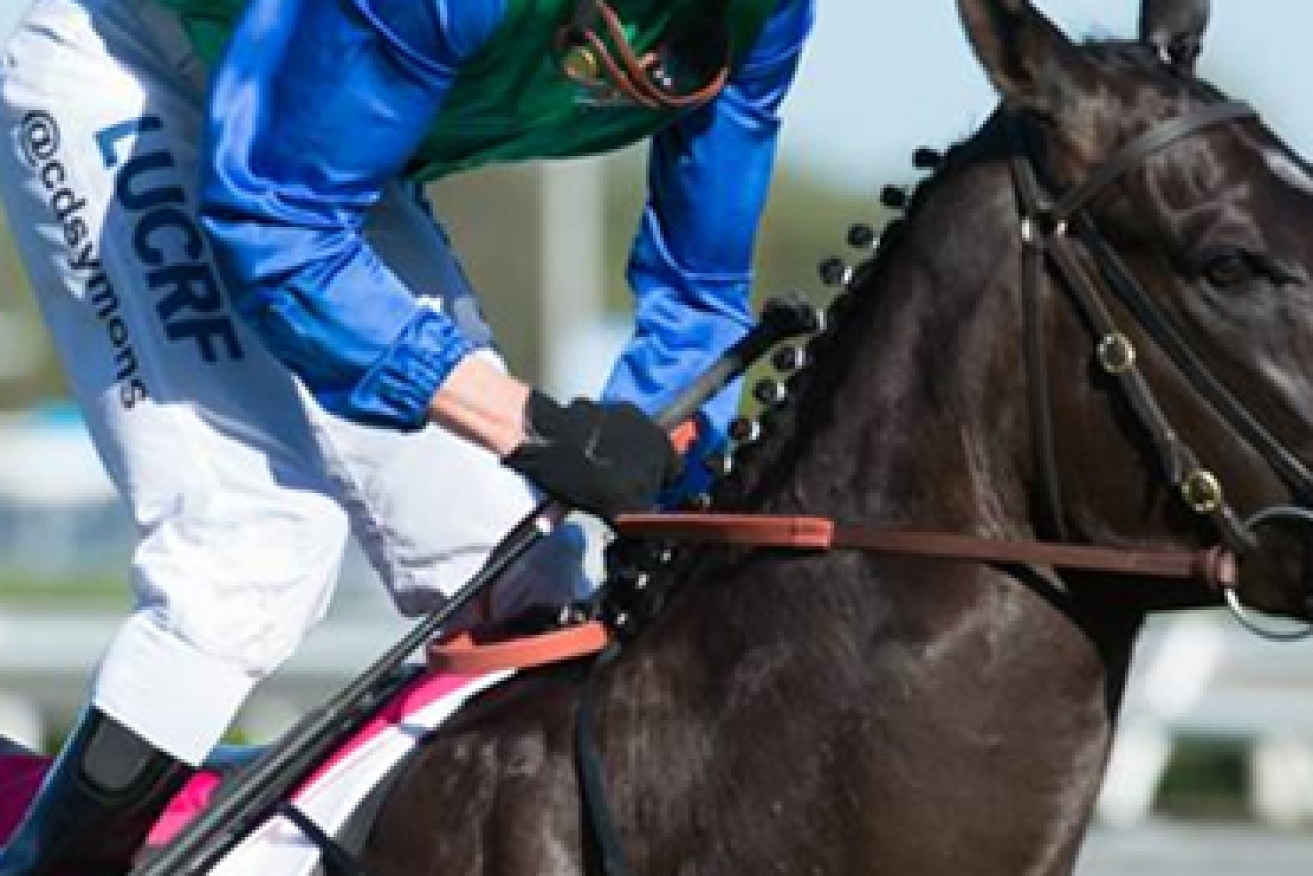Starvation, saunas and salads: this is a jockey’s diet

Chris Symons has been a jockey for almost 20 years.
In that time, he’s learned a lot about horse racing. But he’s also become an expert in another area: dieting.
“Ninety per cent of jockeys don’t have a weight issue when they first start, but as they get older it catches up with them,” he says.
• Things you didn’t know about jockeys
• Brush up on your Melbourne Cup trivia
• Is this our most dangerous profession?
“Between 16 and 21 you’re just hoping that you don’t grow.”

If jockeys don’t make weight, they’re out of a job.
Symons says he’s lucky. He’s reasonably small, light-boned and has a fast metabolism.
Despite this, however, his weekends are still sometimes spent hungry and dehydrated.
For those unfamiliar with the ins and outs of horse racing, jockeys must ride at a particular weight, depending on the horse.
“I like to keep my weight when I’m riding at about 56 kilos. That allows me to get down to 54 kilos within 24 hours,” he says.
In order to do this, Symons subjects himself to a gruelling weekly schedule.
“Friday is when the battle begins,” he says.
“I dehydrate myself. Sitting in a sauna, or a hot spa, I starve myself of fluids.”
As for race day, if the lightest ride is his last, that means no food or drink until dinnertime.
By the time he’s on the horse, Symons says he sometimes can’t speak from dehydration, because his tongue has stuck to the roof of his mouth, or worse he’s cramping because his body is lacking vital acids.
It’s all part of being a jockey, and keeping the weight off is easier for some than others.
Symons mentions the inspirational Steven Arnold, who, at 175 centimetres tall, is a monster by jockey standards. To put this in perspective, the average Australian man is also 175 centimetres – but weighs 85 kilograms, roughly 30 kilograms more than Arnold can afford to stack on.

Symons often starts the day with a can of energy drink.
A jockey aiming for 54 kilos is very different to an average Joe trying to stick to the latest fad diet – if jockeys don’t make the weight, they’re out of a job.
And for Symons, it’s been a gradual journey of growth since he was a teenager, as he continues to develop the methods that work best for him.
During the week, this means a can of energy drink when he leaves home before 5am in lieu of breakfast.
Then, a few muesli bars and pieces of fruit bought at ‘servos’ on the road, and maybe a chicken wrap made with lettuce instead of bread.
At the end of a day, Symons can usually allow himself a proper dinner, although salt is a big no-no, as are carbs. Seafood, however, is a favourite.
When asked if he thinks it’s dangerous controlling a 500-kilogram beast at speeds over 60 km/h when dehydrated and starving, Symons says simply: “I know my limits.”
“Once those barriers open, the last thing that’s on your mind is your weight or how you’re feeling. The only thing on your mind is ‘I’ve gotta win this race.’”
This content was sponsored by LUCRF Super, proud supporters of the National Jockeys Trust. For more information, go to lucrf.com.au.
L.U.C.R.F Pty Ltd ABN 18 005 502 090 AFSL 258481 as Trustee for Labour Union Co-Operative Retirement Fund (LUCRF Super) ABN 26 382 680 883.
All images via Fast Track Photography.
